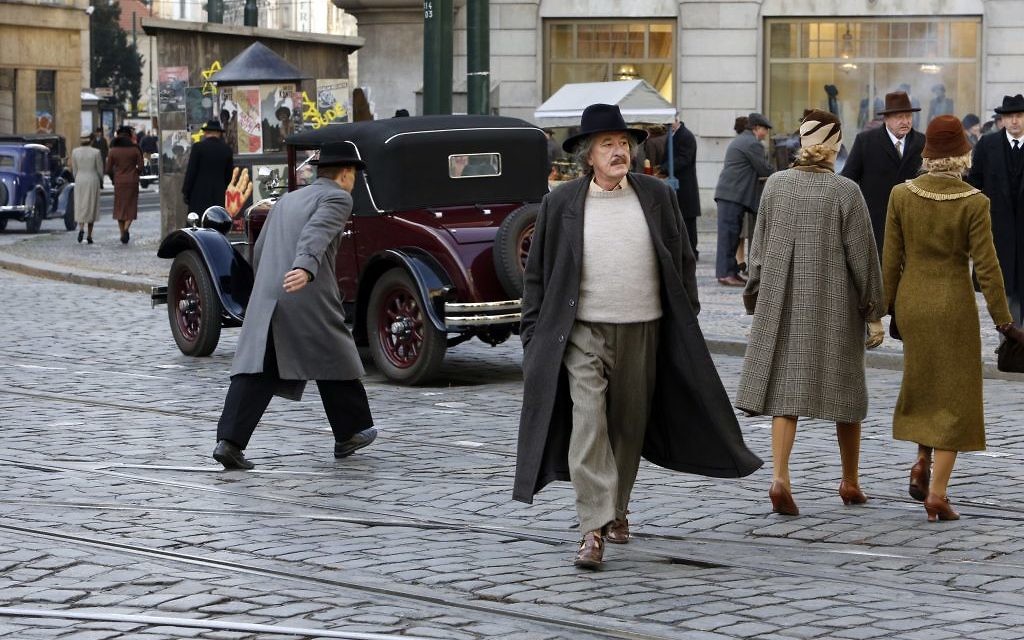A scene late in the first hour of “Genius” demonstrates the contradictions of Albert Einstein.
It’s 1932, and the Nazis have done frighteningly well in a parliamentary election. Einstein’s second wife, Elsa, urges him to leave Germany, but he’s dismissive of her fears and walks to his regular tobacco shop for a refill.
On the way home, he comes upon young brownshirts assaulting Jews while a crowd watches silently. Einstein, a pacifist, feebly tries to get his fellow Germans to act, then almost as weakly shouts for the Nazis to stop.
Get The AJT Newsletter by email and never miss our top stories
Free Sign Up

Geoffrey Rush fills the role of the older, world-famous Albert Einstein.
A child who is cheering the beating sees Einstein and chases him around the block so he can ask the world-famous physicist for his autograph — on a swastika-covered card. An older Hitler Youth type sends the boy away and spits in the Jewish scientist’s face, but only after the child declares that he wants to grow up to be a scientist just like Einstein, punctuated with “Germany, heil!”
It’s all there: the brilliant, famous scientist who once renounced his German citizenship but doesn’t want to leave Germany, is dependent on but dismissive of his wife, and has no interest in Judaism (a ham dinner features prominently in the same episode) but is threatened and hated for being Jewish.

Johnny Flynn portrays Albert Einstein in his student days.
In other words, “Genius,” a 10-part series premiering Tuesday, April 25, on the National Geographic cable network, isn’t lacking for conflict. It also has no shortage of star power on both sides of the camera: Geoffrey Rush as Einstein, Emily Watson as Elsa, Johnny Flynn as young Einstein and Michael McElhatton (Tywin Lannister on “Game of Thrones”) as Einstein rival Philipp Lenard, with Brian Grazer and Ron Howard serving as executive producers of a screenplay based on Walter Isaacson’s biography “Einstein: His Life and Universe.”
To support the Hollywood talent, the show boasts movie-quality production values that bring the late 19th and early 20th centuries to life. Just as important, “Genius” shows us the remarkable thought experiments that enabled Einstein to achieve insights into time and space.
The two episodes provided for review make clear that the series is not an exercise in hero worship. Einstein is disrespectful to his father and potential father figures, takes advantage of friends, and is somewhere between selfish and emotionally abusive in his relationships with women.
But “Genius” is an entertaining, insightful exploration of the development and nurturing of one of modern history’s most original and important minds.







comments